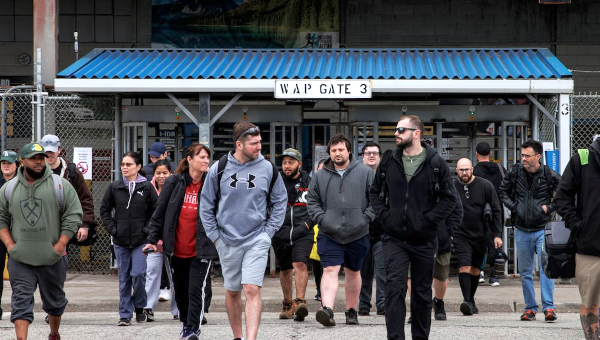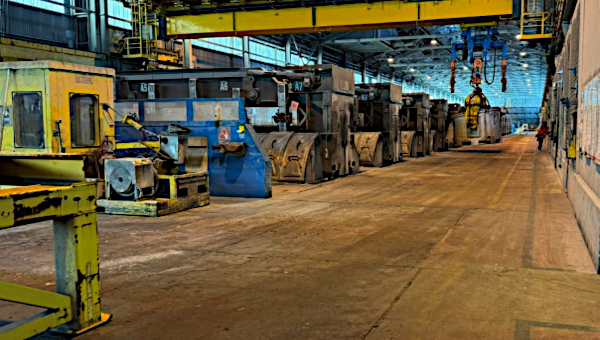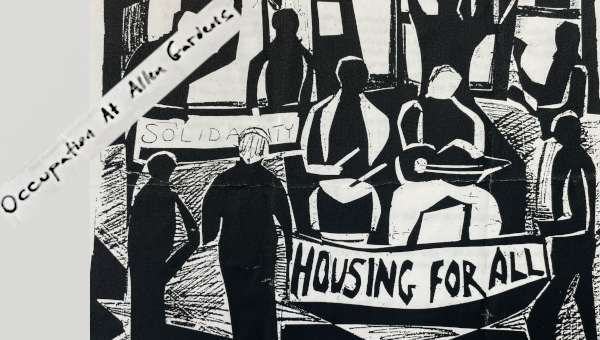Political Sovereignty and Elbows Up: How is it going so far?
How lucky were the Liberals when the last federal election season began? Very. Twin perceived threats came to their assistance.
Like all parties in trouble, they dumped their leader, Justin Trudeau, and selected another, Mark Carney. They crafted an image of Carney as a man who had dined and wined with the rich and makers and shakers of the world, as a canny businessman having served on the boards of several major corporations, and as a sound economist who had contributed to the public good when he served in the prestigious roles of governor of both the Bank of Canada and the Bank of England. Only a leader with Carney’s skill set and experience was equipped to fight off a rampaging Donal Trump who wanted Canada to be the 51st State of the United States and Conservative Party leader Pierre Poilievre who was easily painted as a brutish right-wing ogre.
The makeover was a roaring success. With Carney at the helm, the Liberals got enough support to form a strong minority government. The image of Carney as Moses leading the oppressed to safety was bought by many self-styled progressive voters. They fled their natural and normal habitat, the NDP, in droves. They felt that someone was needed to fight off Trump, and it should not be the reactionary Poilievre. They plumped for the Liberals. Led by Carney, they were the lesser of two evils.
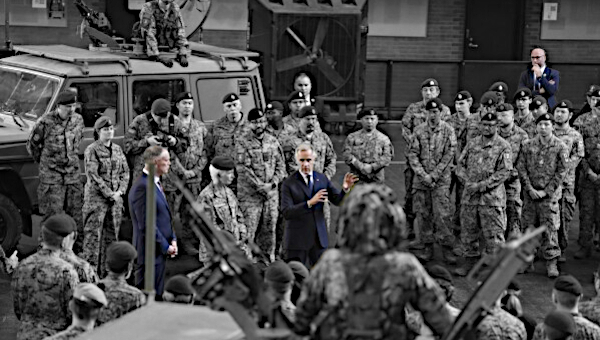
Fear Dulls the Brain
Even during the election campaign Carney sent out some rather alarming signals. He announced that, like Poilievre, he would not impose a carbon tax. He was discarding a core plank of the Liberals’ environmental policy. He also was rejecting his own declaration in his book, Value(s), that a carbon tax was needed to save the environment. That kind of ‘flexibility’ should have worried the self-styled progressives who thought a Carney-led party was the lesser of two evils. Similarly, Carney announced that ‘his’ government would not impose a mild capital gains tax on the truly rich, a tax proposed by Trudeau in the hope that this might restore some of the Liberals’ credibility. Having abandoned getting some revenue from the wealthy, he promised tax-cuts to the voters.
In a burst of honesty, Carney acknowledged that this would also involve some austerity (read: misery for the vulnerable). This should have raised serious questions but did not. Carney seemed to be shielded by the widely held view that he was a first-rate economist and business leader. He was trusted because, surely, he knew what he was doing. Thus many of the self-styled progressive and strategic voters stuck with the Liberals. To them, fearful as they were of Trump and Poilievre, Carney and the Liberals still looked like the best bet, the lesser of two evils. I cannot help but wonder whether any of them now feel uncomfortable about their choice.
Misplaced Hopes: Militarism and Social Austerity
One of the hopes Carney supporters had was that he would protect Canadian sovereignty. Carney’s first act on this front was to invite King Charles III to read an anodyne outline of the newly elected government’s agenda. Some people thought this to be ‘oh so clever’. Carney was seen by them as showing his cunning by subtly telling Trump that Canadians much preferred to swear allegiance to the head of a former empire than to become the 51st State of the United States. But the deployment of this symbolic weapon had a downside. Inherent in the argument was the notion that, not only legally but also politically, we are happy to be a colony. A peculiar way to assert our independence, our sovereignty. More, it was rather insensitive. How might the other foundational groups integral to the polity we call Canada – Québécois and Indigenous people – have regarded Carney’s assumption that his Anglophilic view of sovereignty was uncontroversial, was hunky dory?
Not only was there a manifestation of political insensitivity buried in this supposedly clever ploy, there was also an underlying arrogance. This is an aspect of the Prime Minister’s short reign worthy of notice.
Although there was a brief meeting of the legislature after Carney’s ascension, for the next few months, the message sent to the public was that Carney was governing. The Ministers occasionally said that they thought his latest declaration of what was going to happen was a good idea. To the public it looked as if Carney was out there all alone, elbows up, protecting Canada, and putting it on the road to success.
He announced that Canada was going to commit 5 per cent of its GDP to military spending. The media tell us that this will cost us about $150-billion annually. We will protect ourselves, in particular in the Arctic, from enemies and help out NORAD and NATO members when attacked by enemies. We are left to imagine who those enemies are likely to be, other than the US. We will deploy troops to help out countries under attack, like Ukraine, even if they are not members of NATO. We will not deploy them to help out people under attack like Palestinians.
Was any of this new costly weaponization and readiness to wage carefully selected wars discussed during the election campaign? It was not. It may yet be discussed in the legislature. That discussion will be constrained by the facts-on-the-ground implanted by Carney. Rather grandly posing as our undoubted leader (even though the government is a minority one), he has made serious commitments on behalf of Canada to its NORAD and NATO partners. That is, the discussion in Parliament, no matter how lively it might get, will not change anything: Carney’s expensive and dangerous, undiscussed decision will stand.
More blatantly, Carney, announced that Canada was not going to collect the digital services tax after all. This came, to say the least, as a surprise. The previous Liberal government had been very eager to impose this tax. Chrystia Freeland, the former Minister for Finance (and now Minister of Nothing!), had chafed because the G20, which was promoting the idea that all its members should impose such a tax, was dithering. She wanted to get on with it, as she considered this to be a core component of Liberal government policy. And now Carney, her close friend, announced the demise of this tax. The CBC reported that Trump had told Carney that there would be no further negotiating if the tax stayed on the books. This led to the announcement that Canada, unlike France, Italy, Spain, and the UK, would not have a digital services tax. There was no public discussion, one which might have led to arguments that Canadians had elected a Carney-led government because it had promised them that it would keep its elbows up, not down, when it was necessary to go into those dangerous corners.
The tax had been designed to recoup some revenue from tech giants who benefit enormously from the work product of Canadian users and creators. 90 per cent of Canada’s internet traffic is routed through US-based firms like Amazon, Google, Meta, Netflix, Uber, and Airbnb… They collect billions annually from Canadian users and creators, and it is tax-free. The Digital Services Tax would have imposed a 3% tax on the revenues ‘earned’ by these huge tech corporations. It seemed reasonable. But not to Trump and his administration. Carney caved. He cancelled a tax which, it was estimated, would have put an extra $7-billion over five years in our Treasury’s coffers. Now, in bankers’ terms this, like the foregone capital gains tax, may be chicken feed, but to the persons living on a disability pension, it may seem like quite a lot. As an undiscussed decision, it was quite a decision.
Carney makes all such announcements with a serious air, dressed in the garb of gravitas which was sold to the electorate during the campaign. He is still popular. It may well be that to many Canadians these surprising decisions reflect sober reflection by a well-informed, thoughtful man. But here is the thing: while many Canadians may be comfortable with these decisions, Donald Trump may well feel triumphal about them. He is getting what he wants. In spades. This may not lead this terrifying President to give Canada a break; to the contrary, it may encourage him to make more demands of Canada. To him, we look like a push-over. And, while the dreaded opposition leader Pierre Poilievre will undoubtedly carp about aspects of these decisions, he is not in a position to quarrel about Carney’s objectives: more spending on defence and lower taxes on the rich and lazy appeal to the reactionaries among us. Worse, considering the general direction of the Carney-led government, Trump will remain triumphant and Poilievre weaponless.
Carney and his government seem set to give Trump what he wants, without waiting for a request. Just consider the policies he did advocate during the elections and which he has eagerly begun to implement. “Build, baby, build” is Carney’s take on Trump’s “drill, baby, drill’. Building pipelines, useless and profit-yielding projects favoured by fossil fuel operators, like carbon storage facilities, digging in pristine lands precious to Indigenous people, boosterism about big projects like small nuclear reactors, repeated promises that capitalists are to be given incentives to invest in Canada, all this gives us a glimpse of what Carney means when he talks about maintaining Canadian sovereignty. He appears to think that it means that Canada should be more efficient in its support for investors who will add to monetary growth.
Unsurprisingly, both the national and foreign bourgeoise applaud him and urge him to remove impediments to allow them to invest in Carney’s projected giant projects. In an open letter, executives of energy companies applauded Carney’s proposals and recommended the removal of any remaining barriers to investment, demanding the removal of bans on tankers in fragile areas, the dilution of assessment laws, throwing out the emissions cap, getting rid of the national industrial carbon price, supporting loans to Indigenous people so that they could minimize Indigenous opposition to developments, and the like. They see, in a Carney-led government, a government that is ready and willing to undo a system of regulations which has fettered capitalists (a little, at least). They are intent on shoring-up the Carney-led government’s ambition to speed-up development by removing public- and environment-protecting regulatory schemes. They want to shape and mould his “Build, baby, build” to make their ceaseless drive to maximize profits easier. Carney’s vision that more growth is good suits capitalists’ unchanging agenda. Big Business is striking while the iron is hot.
Carney’s instincts are those of a banker. Thus, when he comes to the electoral political scene, he brings a narrow, traditional economic perspective. His words and actions thus far tell us that he believes that more is better, that the amassing of more and more quantities of money and things is what matters; quality of life is assumed to be improved when the economy as a whole grows, no matter how that growth is achieved. The Carney who branded himself, and who was portrayed by his party, as a benign paternalistic capitalist and a committed environmentalist, has been shoved aside.
This is why a Carney-led government continues to favour foreign corporations that have already been the beneficiaries of many subsidies. The automobile sector was recently showered by the Trudeau and provincial governments with gigantic amounts of new monies to make EV batteries and to build electric vehicles. The economic justification was that this would permit Canada to continue to play a major role in the North American car industry. The federal government had to sell these hand-outs at the same time as food-bank lines were getting longer. So, it said that it was a win/win policy. It was true that the policy would allow corporations to profit, but this would, eventually, mean improved well-being for one and all. That will be one ‘win’. The policy of replacing fossil-fuelled vehicles with electric ones will also benefit the environment. This is to be the second ‘win’. To make the second promise credible, the Trudeau government required the subsidised auto makers to increase the proportion of electric vehicles they sold each year. In 2025, the car makers asked for relief from this condition as they could not sell the required number of electric vehicles without losing money on their fossil fuel production lines. The Carney-led government gave them the relief they sought. Carney, the environmentalist, fell into line. If big business cannot make a profit, government is seen as failing in its primary task. This was so before Carney and seems an even more pronounced principle in the still young Carney government.
It may be argued that the electric vehicle decision is not so telling about Carney’s goals and objectives. After all, some time in the future, the auto corporations may actually deliver on the promises they made when bargaining for extraordinary subsidies (somewhere between 56 and 60 billion). As this is being written, a cloud looms over this hope. Stellantis has just removed a major production line to the US, despite covenants attached to the subsidies it had obtained and which prohibit such action. Still, when bailing out Stellantis and other car companies a few weeks earlier in respect of the number of EV autos they needed to sell, Carney may just have been pragmatic.
But then there is Bill C-5. This is legislation which, in the name of efficiency, will allow the appropriate Minister to suspend regulations and laws which (in that Minister’s view) get in the way of growth-friendly projects getting off the ground or being completed quickly. Usual standards set by environmental assessment requirements, labour relations’ standards, due process principles, the demand that Indigenous people give their free and fully informed consent to the development of a project or the digging of a mine may be set aside. The government said it needs this power to attract capital, to make “Build, baby build” a reality.
The bill was rushed through with hardly any time allotted for legislative discussion. Carney knew, of course, that his minority government could rely on, Poilievre – supposedly his most deadly enemy – for support for this legislation. Like the Liberals, the Conservatives are all about fattening the treasuries of private corporations. There was no attempt to engage in discussion with the public; the process of enactment appeared to omit Indigenous people quite deliberately. This was highlighted by the Prime Minister who, embarrassed when many pundits commented on this aspect of enactment of Bill C-5, called a meeting with some Indigenous leaders. It took place after the Bill was passed. The Prime Minister made soothing noises about how he could be trusted to keep Indigenous interests at the front of his mind when acting under Bill C-5. Arrogance and insensitivity were on public display again, as was the fact that no matter how the Prime Minister has been portrayed, in the end, he was still more a banker for the wealthy than an environmentalist. The projects he is pushing – militarization (perhaps including a portion of the US-led Golden Dome missile defence system!), pipelines, etc. – will gouge and endanger the planet more than they already have been.
Freeing-up the Animal Spirit of Capitalists
This impulse, this belief that, freeing-up the animal spirit of capitalists to do what they choose will yield incomparable benefits, is on show even when he makes more popular plans known. The clamour for affordable housing demands responses. The Carney-led government – as promised during the campaign as well – is undertaking to build a certain quantity of houses. It has set up an agency to do. It is called Build Canada Homes (this overuse of the ‘build ’image must surely have been focus-group tested, must it not?) and will set out to provide affordable housing units. Pre-fabricated houses, constructed with Canadian materials, were pictured as the glittering novelty of the agency’s plans as it presented its first project to the public. In its boosterish announcement, it noted that it was looking for partners, that is, private investors, to get this project off the ground. Instantly, it became clear that the building of affordable housing is still seen as another way to make profits by some chosen people.
The Liberal government is relying on a market-based solution to a market-created problem. Not only is that logically fraught but it, once again, underscores the fact that this government is ideologically on the same wavelength as other conservative governments, perhaps even more deeply committed to unfettered capitalist relations of production than most. To be fair, the plan for affordable housing now being implemented is not, unlike Bill C-5, a surprise. It was part of the Liberal Party’s campaign. It should have been another caution to the strategic voters who felt that a Carney-led government would be the lesser of two evils.
This is particularly so because, during the campaign, Carney acknowledged that there would be a need to cut spending on public services. His government has, since then, given up the collection of revenues by throwing various tax measures into the garbage bins and has committed itself to invest huge amounts of public monies into private for-profit undertakings via a variety of private public partnerships and war preparations. Now, after the election and his announcements of expensive schemes, the Prime Minister has told us that these cuts in the public services are going to be twice as high as those he had projected during the campaign. Here the message is clear again: workers and the needy they serve are to pay a disproportionate chunk of the costs of the “Build, baby, build” programmes that are to deliver both economic prosperity and political sovereignty. For whom? It is envisioned that, to serve the public good, the same class that was always favoured should continue to benefit at the expense of the working class. It is a classic example of late capitalism at work. It thrives on the exploitation of the public sectors to enrich the private sectors. Poilievre is going to find it hard to quarrel with Carney – they are so alike, even if their manners are so different.
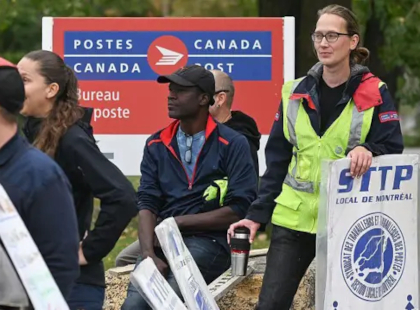
Add to this the Carney government’s continuation of the decades’ long attack on Canada Post. Soon this attack may end with the disappearance of our post office system, one which has been central to unifying the nation, socially and politically. That is a jarring thought for those who believe that we are fighting for the maintenance of our sovereignty. Even more so, as the demise of Canada Post would bring rich rewards to the UPS, Fed-Ex, and Amazons of the world. Those US-based corporations will get to deliver more of our packages and mail. Just now, Canada Post’s workers are on strike for better work conditions. But their existing conditions are better than those of the workers in these foreign corporations’ wretched warehouses where the packages and mail will be sorted and kept. How does this make sense as Canada seeks to carve out a path that differentiates it from the US, that diminishes its reliance on the US? “Elbows up” seems like an inapposite term for the Carney-led Liberals’ responses to the threats which they say face us.
Protecting Financial Capital, Promoting Law and Order for Everyone Else
Take another facet of their programme. There seems to be little movement on a frequently made promise to stop the bleeding of revenue inflicted by our corporations’ and wealth owners’ capacity and willingness to use the malleability of the corporate form and the availability of tax havens. First the Panama and then the Paradise Papers documented how these legalized tricks permit the truly wealthy to avoid taxes. The manifest spirit of our tax laws says they should pay their squirrelled-away money to Revenue Canada. The wealthy prefer the letter of the law to its spirit and do not live up to the obligations of decent citizens. A conservatively calculated finding, reported by Canadians for Tax Fairness in 2025, tells us that wealthy Canadians had $682-billion in tax havens and that the resulting loss of revenue to Canada was about $15-billion. The corporation that had the most subsidiaries in tax havens was Brookfield Corporation with 44. Our Prime Minister once had a close association with that corporation. Fortunately, he has put his investment portfolio into an independent trust.
It is odd that, while Canadians are urged not to buy US groceries and produce, to holiday within Canada, there seems to be no vigorous attempt by our government to bring back monies that would help us assert ourselves more, economically and politically.
Indeed, this is also true of our major pension funds. They have large amounts of money in their keep, and they seek to invest it wisely. But during these fraught days when the Carney-led government declares stoutly that we must diversify our trade and investments, might it not call for these pension funds to pull Canadian money out of the US? For instance, the Canada Pension Plan, which, in 2025, holds $731.7-billion of Canadians’ money in trust, invests just over 50 per cent of that money in the US. Undoubtedly, its managers think that is the best way to get the biggest bang for Canadian premium payers. Be that as it may, these managers are also boosting the US economy. Could they not look for other investment opportunities? Should they not be required to do so? More generally, Canadian investors and institutions invest in US profit-seeking endeavours on a large scale. Jim Stanford reports that, at any one time, the aggregate of Canadian money invested in the US comes to $1.3-trillion.
No one seems to be talking about bringing some of that capital home to show Trump that we can act with some heft, that in the only language he understands, we should be treated as if we were already a sovereign nation. Not only do we not do anything like that, but we go to great lengths to show Trump we want to accommodate his demands. Bill C-2, the Secure Borders Act, is the poster child of this submissive approach.
Bill C-2 (now split into several bills because so much of it was unpalatable) was introduced mainly to appease the unappeasable Trump and to outflank the electoral enemy, Poilievre. Its first part was horrifying. It proposed that Canada Post be allowed to open and inspect suspicious mail; it increased the right of police to obtain warrantless access when investigating crimes. These potentially unconstitutional provisions have been revised and an amended version has been drafted. The opposition parties have not yet said whether this version is more acceptable to them – and, of course, we cannot gauge yet whether they satisfy our constitutional standards – and there are some concerns that they may not appeal as much to Trump as the original text obviously did [see Mark Ramzy, “Ottawa tables toned-down border bill,” Toronto Star, 9 October, 2025]. Maybe the US President will be pleased to hear that Canada has just announced that it is setting $648-million aside to appoint 1,000 more Customs and Border officers, as well as more money to beef up the RCMP, giving them also 1,000 more officers. This will help secure those supposedly porous borders through which illegal substances and unwanted aliens’ stream as well as to attend better to cyber crimes. There are some provisions which will make it easier to get private information and, troublingly, to share information with US security agencies. As noted, the Carney-led government has a curious view of sovereignty.
Another part of the legislation, now introduced as Bill C-12, deals with refugees and immigrants. Its themes are quite Trumpian. Among its provisions, it allows the government, if it so wishes, to take away the right of refugees to seek protection if they have been here longer than a year; it gives the Minister the power to suspend or cancel any applications for permits, such as a request for permanent residency, landed immigrant status, and the like. The Minister may do so if they think it in the public interest. This is a cause for concern as there are many people waiting anxiously in various pipelines to get security of tenure. The Minister might well think it in the public interest to clear some of the eye-popping waiting lists. On 20 Oct., 2025, CBC News posted a report by Priscilla Ki Sun Hwang (“50-year immigration waits stuns lawyers and families, but IRRC says it is no mistake”). She recorded that people who were applying for permanent residency on human and compassionate grounds were waiting between 12 to 600 months for a ruling; the wait is 108 months for the caregivers’ pathway to safe status; up to 228 months for the agri-food stream of applicants, and 420 months for those who are applying under the start-up visa stream dedicated to hopeful entrepreneurs.
The bill also tries to outflank the law-and-order agenda of the Poilievre forces. There are tougher bail provisions than ever before; judges are to impose tougher sentences; there will be more police officers; new crimes are to be created. There also is a clear message sent by the Carney-led government, telling us that it is horrified by the hatreds in our society. It is so aghast that it is setting out to eliminate hateful behaviour by criminalizing it. The federal government thinks it appropriate to criminalize behaviour that a few municipalities have already prohibited by enacting local by-laws. It now will be a crime if worshippers at churches, synagogues, or temples anywhere in Canada are impeded, frightened, or intimidated. Safe zones, dubbed bubble zones, will be established everywhere. The fact that many of our laws already regulate harassing and intimidating conduct at protests and demonstrations is disregarded by the Carney-led government in its quest to look as if it cares about hate and, subliminally, to look as if it cares about Jewish communities. It must know, after all, that most of the people who have been accused of hate-related behaviour have been anti-Israel activists. This posturing has another more menacing limb.
A hate-related crime is also to be created. The definition being used of hate is tortuous, internally conflicted. This is not troubling the government. It will give police officers the task to decide who is to be charged under this unnecessary legislation. Unusually, there will be no need for the police to clear the laying of charges with the Attorney-General. More oomph is to be given to a police force whose biases are already well-known. The government has also said that displaying symbols that might be associated with unnamed terrorist groups will be a crime. There are no criteria to tell authorities how to determine which groups should be designated as terrorist groups. How authoritarian can it get? How more Trumpian might it be?
This incomplete catalogue of what the Carney Liberal government is doing on these non-economic fronts in order to protect Canadian sovereignty should be enough to allow me to assert that: (i) Carney and his allies are toadies when it comes to confront a man who disparages our ambitions to be an independent polity; (ii) Carney and his allies are willing to ask Canadians to abandon their much prized claim to be compassionate and respectful to those in need; and (iii) Carney and his allies care less about stimulating cohesion than they are about crafting a law and order regime which favours un-named, but known, groups over others, also un-named and well-known.
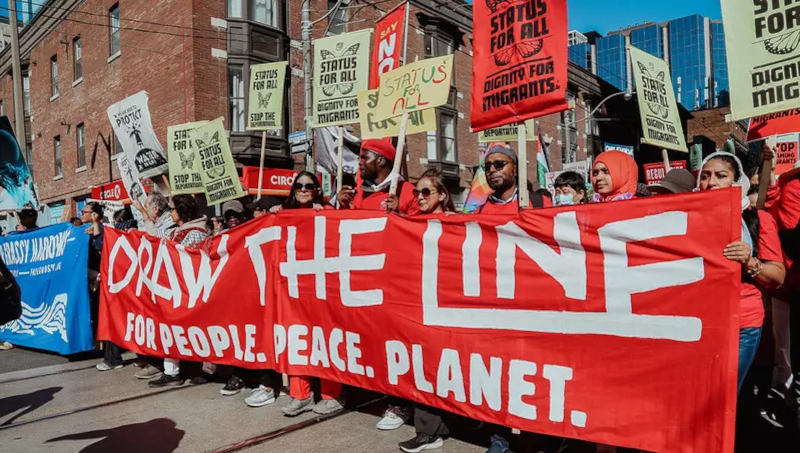
Conclusions: Political Openings Beyond ‘Elbows Up’
- Trump awakened the political class and the public with his claim that Canada should become the 51st State of the US. They asserted that Canada was a different polity to the US. We were, and want to remain, a politically sovereign nation, with our special desires and needs pursued as we choose. ‘Elbows up’ we said.
- A narrow aperture opened for progressive Canadians. This could be a time, some of them thought, to ask Canadians to re-think their social relations. Should we continue to pursue economic growth, measured in monetary terms, or should we be a different kind of nation, one interested in providing equal access to the services and goods that are needed to live a decent life, one that aims at creating substantive equality and developing respect for differences while promoting life-enhancing policies for all peoples? This could be a time to move toward a more democratic, solidaristic social system, one in which we re-visit our relations with the historically marginalized Québécois and Indigenous peoples. This would stamp our polity as truly distinct from the US. It would be an assertion that we want to be politically sovereign because we are on our way to reject the logic and tragedy of capitalist relations of production and persisting colonization.
- There was another opening, a much larger one. The cri de coeur of Canadians could be used to do away with restrictions on capitalists and let them pursue profits as best they could. Welfare for all would trickle down as much less fettered animal instincts were given more sway. This second opportunity created by the Trump assault even the limited social reforms of Canadian democracy has been embraced by our national bourgeoisie. Think of what they argue for and what they mostly are getting: de-regulation to allow them to tear up the countryside, degrading the environment, displacing Indigenous people after setting them against each other, and then selling the products of all this planetary violence to have more environmentally unfriendly goods produced elsewhere. They expect to be subsidized for these efforts. Their vision of embedding political sovereignty for Canada is to maintain and perpetuate it as a centre of one variant of capitalism. Our ruling class and its intellectual gatekeepers are selling us the idea that our political sovereignty is safeguarded if they are allowed to pursue export-led growth on steroids. Historically, this model has resulted in our integration with the US economy. As the US is the bigger party in this relationship, it has dominated our economy and capital-labour relations spheres. We were never all that sovereign. Persisting with this model suggests that our leading capitalists are aiming to be the “50½th” state of the US.
- To get there, the capitalist class helped beatify Mark Carney. Carney was not only one of them by instinct and career experiences. They could easily position him as a saviour: he could walk the talk of an economist and a business person with experiences at the summits of financial capital whose objectivity had been proven many times. He was a bit like a trusted inmate in a prison who can be relied on by the warden to help contain and restrain the convicts.
- Thus far, under the guise of keeping his powder dry, he has given Trump much of what he wants by giving big business much of what they want. We are told that Carney is waiting for a ‘deal’. Undoubtedly, there will be a formula negotiated on steel, aluminum, and lumber that will end disputations for a while. This will be greeted as a success. But it will only come after the Carney-led government has given our owners of the means of production more profit-seeking chances than they had. It will come after we have become more integrated with the US. Here two other points arise.
- Not only will export-led growth persist as Canada’s main economic policy, the Liberal government’s crazy willingness both to spend more money on militarization and to invigorate its commitment to two US-led alliances, NORAD and NATO, lead to less political sovereignty rather than more. And, less directly, the same can be said about the draconic security laws the Carney-led government is about to enact. Our political sovereignty apparently includes harsher treatment of easily targeted people; it allows for more intrusion into private affairs by our police and other security forces; it envisages more sharing of information about Canadians with the US; it creates unnecessary crimes that will exacerbate existing divisions. This approach to national security and law and order speaks to a growing authoritarianism, a dilution of democratic institutions and beliefs. The kind of political sovereignty that is being protected is not worthy of the name. We are on the wrong track.
- One of the reasons why all this is happening without much push-back is that, over time, the Canadian voting public has become politically more conservative. The proof is in the eating of the pudding. They vote for parties that share Carney’s lust for growth and more growth, regardless of what banner they campaign under. The Carney-led government is pursuing the speeding-up of large projects to be undertaken by private investors aided by government subsidies. This is, of course, the programme of David Eby in British Columbia, Danielle Smith in Alberta, Doug Ford in Ontario, and Francis Legault in Quebec. Each of these provincial Premiers have enacted laws that closely resemble Bill C-5 presented by the Carney-led government. They all want the same thing: growth based on digging stuff out and selling it, and all are trying to facilitate this. Carney is no outlier. He is one of them. All have been favoured by the voters.
- Carney was portrayed as a steady hand in a time of need, one who would not be as indifferent to the environment and migrants, not as fierce when it came to national security or street crime, not as insensitive to diversity and difference as is Poilievre, the leader of the federal Progressive Conservative Party. He was the lesser of two evils. But Carney is a conservative, if not a Conservative. He has internalized the ideology and ideas sold on behalf of the ruling class. This explains why Carney has been serving that class very nicely even if he was, and remains, the lesser of two evils. Yes, we are on the wrong track.
- We need to democratize all spheres of our activities, that is, if we want people to exercise true sovereignty over their domain, we need more democracy, not less. Less is what the Carney-led government, by governing to suit large capitalists, is offering us. Carney’s notion of sovereignty is to expand the right of the rich and powerful to use their capital as they see fit, regardless of consequences. It is intended to, and does, reward the rich and is intended to, and will, sacrifice (to use Carney’s favoured word) the more vulnerable. Inequities will continue to reign; they may get worse. The Carney strategy to protect sovereignty will wreak havoc on our physical environment. It is not acceptable. •



